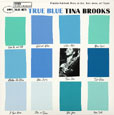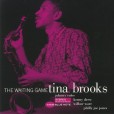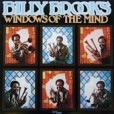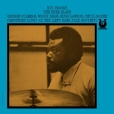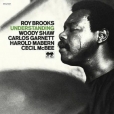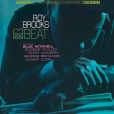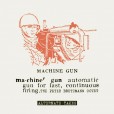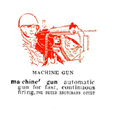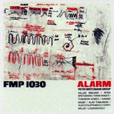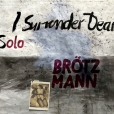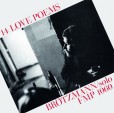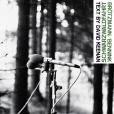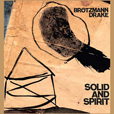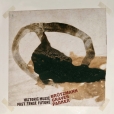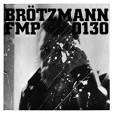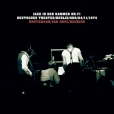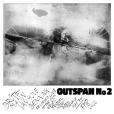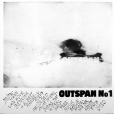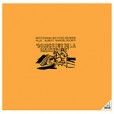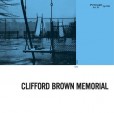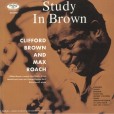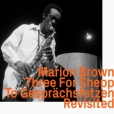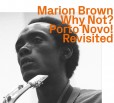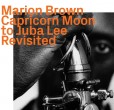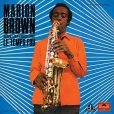Your basket is empty

‘Classic Vinyl’ series.
BB was trumpeter for Ray Charles — actually he plays a double-trumpet — who co-produced this ace LP of funky big-band jazz for his own Crossover imprint in 1974.
Also featuring Monk’s bassist Larry Gales, drummer Clarence Johnston (who recorded some killer Blue Notes with Freddie Roach), saxophonist Herman Riley (Side Effect, Pleasure, Letta Mbulu), and guitarists Jef Lee (from various Roy Ayers projects) and Calvin Keys (Black Jazz Records).
With the fabulous Forty Days, as sampled by Tribe Called Quest for Luck Of Lucien, and by Mobb Deep etc etc…
Surely the definitive reissue of this Detroit jazz classic.
It’s the recording of a live performance in 1970; a deeply entertaining, hard-nosed quick-fire of forward-looking takes on soul jazz, post-bop, modal, and out-there. The great drummer is in pumped, scintillating form; keen to lay out his virtuosic brilliance. Woody Shaw, George Coleman, Hugh Lawson, and Cecil McBee… the band is blazing.
Re-mastered using the original master-tapes; 180g vinyl; Stoughton tip-on sleeves; an insert with new notes and rare photographs.
Monumental free jazz, still blinding.
With Willem Breuker and Evan Parker also on saxophones, Fred Van Hove on piano, Peter Kowald and Buschi Niebergall on double basses, Han Bennink and Sven-Ake Johansson both playing drums.
The CD is on FMP, with two extra takes.
Peter Brotzmann (sax), Toshinori Kondo (trumpet), Frank Wright (sax), Willem Breuker (sax), Hannes Bauer (sax), Alan Tomlinson (trombone), Alexander Von Schlippenbach (piano), Harry Miller (bass), Louis Moholo (drums).
LP from Cien Fuegos.
Our favourite of all his records.
From 1984, inspired by a Kenneth Patchen chapbook, it favours tenderness, lyricism and expressivity, but without foregoing Brötzmann’s characteristic squalling ferocity and angst. It never drags: he plays baritone, tenor and alto saxes, different clarinets including bass clarinet, and tarogato, bringing every trick and technique to bear on a whirl of feelings and emotions, in pieces nearly all less than five minutes. Bar the gorgeous opening reading of Lonely Woman, it’s all improvised, but utterly compelling, reflective, melodious, ravishing and rawly personal.
Beautiful music; hotly recommended.
E-flat, b-flat and bass clarinets, soprano and alto saxophones, birdcalls, viola, banjo, cymbals, wood, trees, sand, land, water, air.
Recorded outdoors in 1977, in the Black Forest, near Aufen.
Saxophone, clarinet, tarogato, frame drum, vocals.
Peter Brötzmann, Milford Graves, and William Parker, live and direct form the front room of CBGBs in 2002, with the drummer’s hand-painted, Orisha-adorned double-bass-drum kit, captured in its full thunderous glory on this recording, occupying most of the available space.
First in a series of records presenting previously unreleased works featuring Milford Graves.
Two ace LPs: Marion Brown Quartet on ESP in 1966, after Brown’s breaking through on Ascension and Shepp’s Fire Music the previous year; and Juba-Lee, a septet recording out on Fontana in 1967.
With Wayne’s brother Alan Shorter in full effect on trumpet (and in the compositions), Bennie Maupin making a very early appearance, the great Grachan Moncur, Dave Burrell, Reggie Johnson, Ronnie Boykins, Rashied Ali and Beaver Harris.
Marion Brown’s family runs a loving Instagram account.
